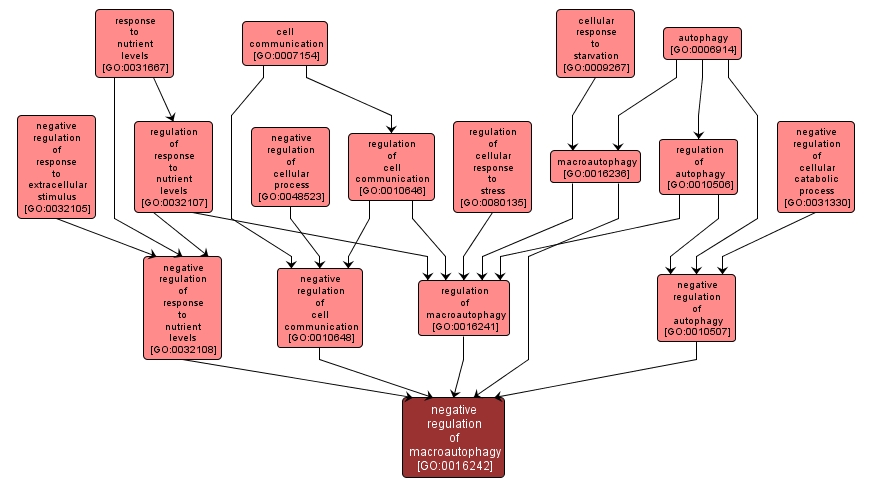GO TERM SUMMARY
|
| Name: |
negative regulation of macroautophagy |
| Acc: |
GO:0016242 |
| Aspect: |
Biological Process |
| Desc: |
Any process that stops, prevents or reduces the frequency, rate or extent of macroautophagy. |
Synonyms:
- downregulation of macroautophagy
- negative regulation of starvation-induced autophagy
- down regulation of macroautophagy
- down-regulation of macroautophagy
- inhibition of macroautophagy
|
|

|
INTERACTIVE GO GRAPH
|














